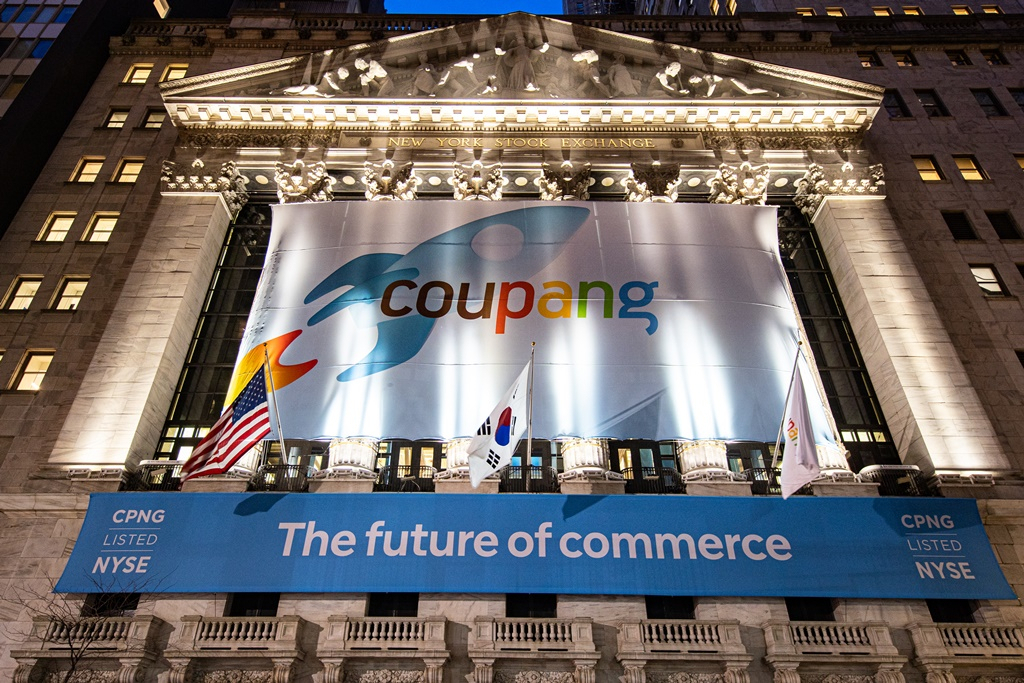
E-commerce platform Naver is bolstering its delivery service, which has remained its weak point despite its vast vendor network, and renewing competition with its archrival Coupang.
Naver said recently it is launching a new delivery scheme, called “Naver Guaranteed Delivery Service,” starting Jan. 14, which aims to minimize delivery time and compensate consumers if their orders do not arrive on time. The point reward worth 1,000 won ($0.8) compares to delivery fees normally priced at about 3,000 won.
In order to accelerate the new scheme, Naver has teamed up with SK Energy, an energy firm affiliated with SK Group, to establish logistics centers at some 3,000 SK Energy gas stations nationwide. The centers, named micro fulfillment centers, are expected to be operated under Naver’s exclusive artificial intelligence system that helps manage logistics and supply chains more effectively.
The latest development comes after Naver formed a Naver Fulfillment Alliance last year with the nation’s No. 1 logistic company CJ Logistics and other smaller firms to allow vendors to better control the entire process of packaging, delivery, inventory management, management of returned products and other customer services. In 2020, Naver and CJ Logistics inked a 300-billion-won share-swap deal.
“Naver’s greatest strength lies in its acquisition of a diverse range of vendors. But it relatively lacks edge in distribution capabilities, compared to its contenders,” said an industry source who wished to be unnamed.
“Currently, Coupang, equipped with more than a hundred fulfillment logistic centers across the nation, is almost unrivaled in terms of delivery time.”
At a press conference held in November, Lee Yoon-sook, head of Naver Forest CIC, dismissed the company’s renewed rivalry, saying “We do not care much about our rivals. What we focus on is improving our weak points and adopting our own way of business.”
According to market tracker WiseApp, Naver and Coupang are estimated to have posted 36 trillion won and 34 trillion won, respectively, in terms of transactions last year. Naver was the largest e-commerce platform with a 17 percent market share, which compared to 13 percent of the No. 2 Coupang.
Coupang is also ramping up efforts to take the top spot, largely buoyed by its upbeat earnings this year.
After years of losing money since the launch of its ultrafast Rocket Delivery service in 2014, Coupang turned to a profit in the third quarter this year. The company logged $90.7 million in net income during the July-September period in a dramatic turnaround from last year’s net loss of $324 million. Its boasts a whopping 18 million active members.
In a move to continue the momentum, the company recently relocated all its delivery-related employees to Coupang Logistics to increase the number of delivery people responsible for the overnight delivery service.
Smaller rivals are also upping the ante to secure a footing in the soaring e-commerce market.
Shinsegae Group’s SSG.com and startups like Kurly and Oasis Market are still gauging the timing of their delayed market debuts amid investor jitters.
SSG.com had sought to make an initial public offering earlier last year but the plan was put on hold in May due to unfavorable market sentiment. Kurly whose IPO application got approval in August is required to complete the remaining process by the February deadline. Kurly’s market value is estimated at over 1 trillion won.
Adding to them is 11 Street, a spinoff from SK Planet, an affiliate of SK Telecom, which is also bracing for a market debut this year after attracting some 500 billion won from several institutional investors.
“A fiercer competition among e-commerce giants will bring about improved logistics in the nation’s logistics market,” another industry source said on condition of anonymity. “Both consumers and vendors are expected to benefit from more advanced delivery services.”




![[From the Scene] Monks, Buddhists hail return of remains of Buddhas](http://res.heraldm.com/phpwas/restmb_idxmake.php?idx=645&simg=/content/image/2024/04/19/20240419050617_0.jpg&u=20240419175937)
